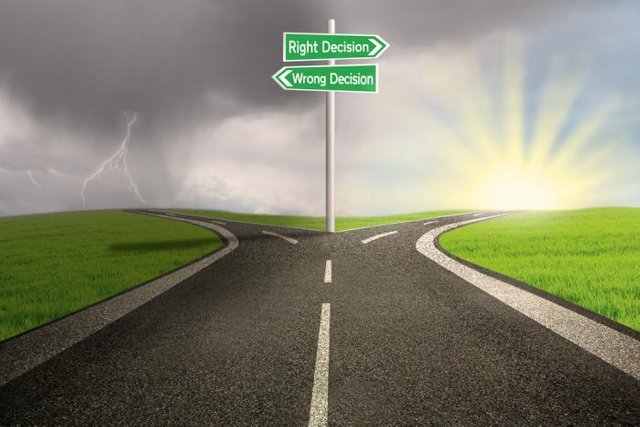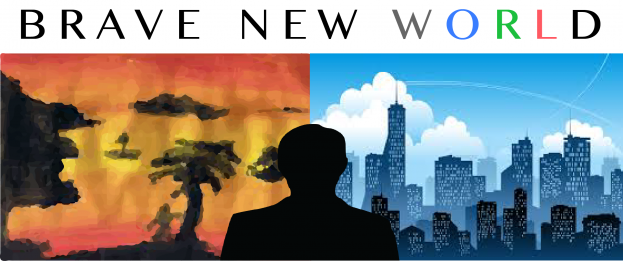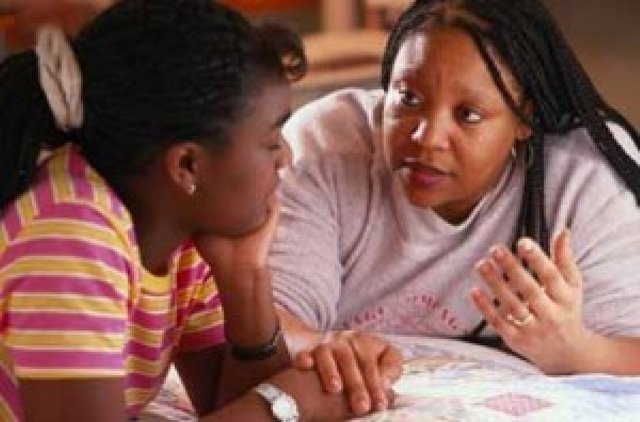VolAnarchist Interviews: RenBlogger on Homeschooling

Homeschooling is the education of children at home, instead of sending them to a public, charter, or private school system to receive their education. Children can be taught by their own parents, group with other children to be educated by their own parents or the other children's parents, and they can utilize online education programs, hire private tutors, and purchase learning materials and lab kits for educational usage at home. Though homeschooling in America has roots in Christian doctrine, modern homeschooling can incorporate secular and non-secular materials for teaching.
The common, mainstream narrative in regards to homeschooling is that, "It's something practiced by Mormons and religious fanatics to shelter them from the rest of world," or , "Only rich people can afford to homeschool their children." Those sentiments, combined with the dismissal of the failures of the American public education system, contribute to why people are all too willing to dismiss homeschool education. However, I'd like to take the time to deconstruct those misconceptions behind homescooling and address the many positive affects of this method of schooling.
In this article, I'll be conducting an interview with a fellow Minds user who goes by the name of RenBlogger. She's been active on the Minds community, giving updates on the homeschooling education she's providing for her children and speaking out against the public education system. The information on where else you can find RenBlogger or VolAnarchist will be provided after the interview.

VA - I'd like to, as James Lipton often likes to say in his interviews, bring things back to the beginning. Where does the name 'RenBlogger' come from and how did you get your start on the internet?
RB - LOL Yes, origin stories are a good thing. Does having an origin story make me a superhero for homeschooling? We’ll let the audience decide.
I have a simple answer to this question, R, E, and N are the first three letters of my first name and “Blogger” has to do with an interest that became a big part of my online experience a few years ago. As to how I got my start on the internet: Well, I started with an email, got on social media (myspace to Facebook), started blogging, and have since dabbled in making videos in, what I think is, a sort of natural progression in online expression. Being known as RenBlogger came about as I’ve waffled back and forth on whether or not to use my real identity.
As I started to write about more controversial topics, it became clear that a “secret identity” would better serve me, and those who are connected to me but aren’t making the choice to be controversial. Though, because I waffled back and forth, there are friends and foes alike who know who I am, so doxxing me wouldn’t be hard. It’s an identity that works like a lock on my front door, it only keeps honest people out.
There is an educational element to the name, though. I wasn’t a super student in school. There were all sorts of reasons for this, but the larger point is, by high school, the idea that I wasn’t college material was beat into me and I left school thinking I was pretty dumb. I’ve since discovered, I’m not so dumb, and having discovered a love of writing and that an undeveloped natural talent for it is something I possess. Having “Blogger” as part of my online identity, on some level, is a declaration of having broken free from the damage our public school system inflicted on me.

VA - When did you first hear of homeschooling and what did you think of it, as a concept, initially?
RB - I was mercilessly picked on in school. It was junior high, I think, when I first heard that homeschooling was an option and, by that time, I was desperate to get out of school. When I heard it was an option, I went home and begged my mom to homeschool me. She refused, believing she was incapable of doing the task justice. There’s a lot in that response on which I need to expound.
I have a different view on bullying, one that has developed as I’ve explored the arguments against homeschooling. I think today’s anti-bullying campaigns are ineffective because they only deal with the symptom, and not the cause. The cause isn’t “hate” that children have learned at home. The cause is the structure of our schools. In what universe does it make sense to stick 17-21+ kids, all around the same age and similar levels of maturity, into a room for 6+ hours a day with a single adult whose job is teaching academic disciplines - not to raise well adjusted adults - and expect that children are going to magically mature w/o anyone getting hurt in the process?
And, let me take a moment to point out the “+” in 6+ hours a day. When you consider the increase of moms working outside the home, necessitating things like before and after school care programs, and the societal push to have children busy with after school, extra curricular activities, parents are spending less time directly impacting their children in that process.
The other thing that made an impact on me from first being exposed to the idea of homeschooling, was my mother’s lack of confidence in her ability to be the main facilitator in my educational experience. There are so many vantage points one could explore to explain it, but I know my mom. She’s smart and super resourceful, so why would she feel like she couldn’t educate me? I think the answer to this question is complex and has a lot to do with the deconstruction of the important role of mothering.
I once observed, in a challenging question to another, “Why do you think the internet is overflowing with mommy blogs and mothering websites?” I think it’s due to the return, which many women are making, to mothering without the art having been passed down from their working mothers and grandmothers. Historically, children were raised and educated at home for most of human history. Why are today’s American (really, Western) women lacking the confidence needed to teach their kids the 3 R’s? I think that’s a question worth exploring.
It wasn’t just her. I can’t tell you how many times I’ve heard college-educated teachers say they didn’t think they could homeschool their children and that flabbergasts me. How could that be? Am I really dumb? Do I not know what I don’t know about what it takes to educate people? Since I have three thriving children, who aren’t dumb after 8 year's of homeschooling, I don’t think that’s it. What is it that college educated people have been told about education that would make them feel unqualified in teaching their own children at home?
I think one has to ask themselves: What is education? And, is schooling the same thing as education? I think the answer to my bewilderment at college educated people feeling inadequate is that training to be a US public school teacher is more about navigating our schooling system and less about providing the essentials of education.

VA - I've interviewed people in the past that have homeschooled or, as it's sometimes referred to by Libertarians/Anarchists as, "unschooled" their children before. They usually have a sort of decisive moment where they've absolutely had it with the public school educational system, remove their children from school, and make the decision to homeschool. Do you have that decisive moment and, if so, what happened?
RB - Did I have a decisive moment? Yes and No. The “no” comes from the fact that, as a matter of this confidence in my ability to parent - and not just my ability, but it’s importance - I wanted to homeschool from the start. However, I wasn’t quite as confident as my desires were in the beginning so, my oldest did a sort of part-time public/part-time homeschool experience her Kindergarten year.
Because it was Kindergarten, and we were living in a smaller town, the school allowed for a wide cut swath of exploration in that partnership. It was a good experience with the school, but I don’t recommend a split experience like that in K-8. It’s confusing for the kids and I found my daughter wanted to stay once she was there, so it was counterproductive to my goals.
We moved to the city between her Kindergarten and 1st grade year. The school was much less accommodating, but because we’d just moved, the house needed work, I had to settle us in, and my 2nd child was quite young, I enrolled her as a full time first grader.
Enter the “yes”.
That year, my 6-year old first grader came home with an hour or more of homework almost every night. The math they were teaching was, what I’d later discover, rolled out as an experiment in introducing Common Core math standards - before they were officially the standards - that would be pushed with Obama’s, “Race to the Top” campaign. I was not impressed. There were social/behavioral focuses (my job) that took up a lot of in-school time and a lot of academics (their job) were coming home for me to do.
As I’ve established, I take my job seriously, and didn’t have time to do their job in the few short hours I was supposed to be doing mine. I spent a good amount of time letting the teacher and principal know how I wanted them to stop doing my job and start doing theirs, which made me a bit of a thorn in their sides, and was the cause of more than one personal spike in blood pressure for me. By the end of the year, I knew that this system wasn’t going to work for me as a partner in education for my children, which gave me the last bit of confidence I needed to take the reins and steer our ship in the right direction.

VA - In the United States, there was a study produced by Concordia University that states that during the 2013-2014 school year, the amount of funding put towards elementary and secondary schools was $617.6 billion, breaking down to $11,621 per student. 46.7% of this funding is received through State-level funding, another 44.7% is received through Local funding, and the remaining 8.6% is received through Federal funding. ($276.2 billion, $288.6 billion, and $52.9 billion respectively)
Given how much money is being put towards public education and how further funding has proven to be ineffective towards providing higher-quality education, what would be your strongest argument in support of homeschooling when it comes to the "bang-for-your-buck" factor?
RB - Given that homeschoolers are not just welcome at colleges, but sometimes sought after, and that they do better, on average, than their public school counterparts, both in grades and self motivation (the reason colleges seek homeschoolers), I’d say spending no more than $500 a year, on each of my three students, is a pretty sweet deal comparatively. And, while there are some homeschool families who spend more, in my circles, I’m considered a bit of a high spender.
When you look at the totals you shared, how much of it is actually about the education your child is receiving and how much of it is about furnishing our schooling system?
Think: “Administrators and Electricity.” That total represents paying a government system to do a job most of us could do ourselves, and the argument could be made that we, parents, can do it better. I pay $50 a year to administration that takes care of reporting my children’s education to satisfy Maine’s requirements for homeschooling. The rest of that $1,500 goes into things that directly impact my children’s education.
It’s the fiscal version of the time difference in public school vs homeschool daily attendance. Your public school kid spends 6+ hours a day on the same material my kids can get done in 2 - 3 hours. Why? Because my kid doesn’t line up and wait for his morning snack. He goes to the refrigerator and gets an apple to munch on while he’s listening to his lesson. He doesn’t wait to move on to the next subject until the next class period, and he neither holds up nor is held up by his slower classmates. The excess in both money and time is a system phenomenon; it has little to do with education, which is why increasing that budget isn’t producing smarter kids. The system is inherently inefficient.

VA - I've heard a lot of people argue that, because of the technology available to children today, it becomes a lot more difficult to get children to focus on their studies and to encourage academic growth.
Alternatively, I've seen and heard a lot of teaching tools, games, and whole online educational programs and mobile phone apps being praised by parents for how they help their children learn.
As a home educator, what are your opinions on technology being utilized as teaching tools in public schools versus being used in homeschooling?
RB - Oh, that’s a big question, and it’s one I’ll answer with keywords that your readers can look more into on their own time. As a tool, technology is great for both homeschool and public/private schools. We regularly use technology for our studies here. The difference comes in when you understand the “shift” that’s coming with the education reform. Technology in public schools has a two-fold purpose beyond being just a “tool”.
The first is for data collection on your children. Part of Obama’s “Race to the Top” was incentive for the states to adopt the Common Core State Standards (CCSS), and while there is reason to fight them, they are only a small segment of the Education Reform. Before you cheer your state’s removal of the standards (as some states have done) be sure to check out what replaces them. If the elementary high stakes tests can still be taken with your state’s replacement standards, you’re battle is not won.
Not every state has the standards, but every state does have the Statewide Longitudinal Data System (SLDS) in place to varying degrees. The SLDS is the place where all your student’s data is collected and stored. Thinking of all the ways public school has expanded its grip on the child over the last decade: Universal - Pre-K, the collaboration of after school programs and the school system, the school-based health centers and the changes in FERPA laws that allow for that information to be shared as part of the student’s collective profile.
Second, a couple of years back, there was the emergence of the Office of Education Technology draft document “Grit, Tenacity, and Perseverance” which mapped out using biometric technology in the classroom to detect the attributes mentioned in the draft title. When one remembers some emerging news stories of teachers/school departments watching students through their school assigned laptops, and the more recent societal acceptance of biometric technologies like, but not limited to, Fitbit and the like, the argument that it was simply a “draft” loses a little potency.
This same office is responsible for the creation of the National Education Technology Plan (NETP), it is the agenda one should look into to discover the application of “Always on Learning” which represents the “shift” in our education system. The general idea is to have your child continuously connected through mobile, online devices; for their education to be a 24/7 accessible experience. Teachers are no longer the single practitioner of your child’s experience, but facilitators who guide your children to a host of online “stakeholders” in your child’s education. An article worth considering is a 2012 piece written by Bill Gates, titled, “Education 2.0”.
So, when we talk about technology in public education, we’re not talking about it as just one of many tools to teach say, math. We’re talking about technology as the new school room that can reach into your home at 7 pm as easily as it can be utilized at 2pm from a study hall. My homeschool student can study any time, and your child can study anytime after school, this is about collecting data and having control over - through access and connectivity - their entire educational experience. A centralizing of their entire educational experience via technology - I, for one, have made decentralization a driving factor in almost all aspects of my family’s experiences to the best of my ability so, my view of technology’s role is in direct conflict with that of both the public health and education sectors.

VA - In our prior conversations on Minds, we've gone over the subject of 'Common Core' education and the impact it has on children. Some have compared it to another government attempt at indoctrinating children to take part in Doublethink and Groupthink, much like it was described in George Orwell's novel '1984'.
Others compare it to Hypnopaedia as described in Aldous Huxley's 'Brave New World', where children are taught to learn factoids of knowledge, but lack the critical thinking skills necessary to further understand and apply that knowledge.
What impact do you think the Common Core system has had on the education system and on how children come to learn information? If it is harmful, what steps can be taken to undo what Common Core has done through homeschooling?
RB - The Education Reform, as a whole, is deeply troubling to me. As for the standards themselves, they exist to determine what child will be sorted where by junior high through high stakes testing. The standardization of the various state’s standards is not just about nationalizing (centralizing) our education system (creating national “group think”), but about creating an extremely efficient human capital production system. The more appropriate 1984 parallel is when Winston describes how the education process finds and trains children, from the proles to the inner party, into the ministry or work function for which the party believes they are best suited.
“Critical thinking” is a hot topic - “We need more of it!!” yell the Ed. Reform proponents. However, in this case, it’s really important to define what is “critical thinking”. The “critical thinking” the Ed. Reform proponents believe needs to be central to education efforts revolves around doing away with traditional logic and focusing on modern logic which has it’s roots in mathematics, like statistics, as opposed to Logical leading to Rhetoric.
When you hear Ed. Reformers talk about “critical thinking”, what they mean is: deconstruct everything we’ve collectively held to which will lead to everyone coming to the same conclusions when presented with what they believe are the concrete “facts” and “evidence”. If everyone comes to the same conclusion, I’d say that’s evidence of a lack critical thinking but, then, that’s the goal, isn’t it? People coming to different conclusions slows down progress in agendas.
Speaking of statistics, you’ve no doubt had an online debate and after your reasoned arguments have had their short lived time in the sun, your opposition hauls out this stat or that, as if simply presenting a statistic is supposed end the argument because you were presented with “the facts”.
The fine art of debate is being lost on a deeper level than that of deplatforming unpopular speakers on a college campus. The ability to think through an argument and articulate a reasoned thought is being replaced with the rule of statistics. Even in that, it seems to me, people are not being taught that statistics show a resulting phenomenon, but rarely offer any concrete answer as to why that statistic is occurring.
The CCSS focus on analyzing a carefully selected portion of literature to teach a moral, and often political, point is akin to taking a portion of a Bible verse and building a 30 minute sermon around it. You might produce some great talking points, but you’re depriving your audience of anything substantial or worthy of further thought. It’s propaganda. Being able to read a classic piece of literature, in it’s entirety, and understand all its meaning is purposefully becoming an antiquated, unnecessary skill.
Common Core Standards are the shift our education system is making away from the true ability to think for oneself and into an attempt at unification of thought. So, 1984 is an entirely appropriate comparison. I haven’t read Brave New World yet, but it’s on my list, and I’m sure those who have read it are dead on in their comparisons.
How can this be countered through homeschooling? Well, that’s more complex. A homeschool parent’s job is tougher in that you have to expose your children to both to some degree. Your children have to know what world they’re walking into, but if you don’t like that world, you’re responsible for teaching them the better things.
Homeschooling is largely unregulated in many states, giving most parents a lot of freedom. I’ve spent a good amount of time picking materials that would help me teach the better things and sometimes, we’ve been pretty unorthodox in our approach. For instance, one year we ditched our curriculum (save, math) and just read classic children’s literature for most of the school year. There is a wonderful freedom, in answering for yourself, “What is education?”. When you break free from the significant chains public schooling wraps around your mind, a whole world of learning opens up.
While I firmly believe anyone can homeschool their kids, I also advise that homeschooling is not for the faint of heart. You have to be confident and you have to believe that, while the whole country shuffles through this system like zombies, your child will be better off for not being a part of it.
I think it’s a tragedy when homeschooler moms spend their time preparing their children to be apart of the system. If you’re going to do that, you might as well keep them in school and enjoy a gym membership. Homeschooling parents have to trust that what they’re doing produces wonderfully adjusted humans who can face the world and maybe even impact it.
You will feel inadequate at times, and you will question if rejecting certain approaches to education is wise, but the longer you do it, and the further away from the system you get, the more you see the good in what you chose and the more confident you become in the people you’re raising. My first year, I was a wreck of nerves! Eight years laters? I know beyond a shadow of doubt that we’re on the right path.
I’m raising free-range kids and everyone who does the same is the antithesis to today’s slow and steady march toward 1984. Which, is why it’s important that you keep up with local education laws that might impact homeschooling. The Education Reform represents a massive centralized, social reconditioning machine for the purpose of efficiently creating human capital. Homeschool is the fly in that ointment. We are the rebels and being rebels will eventually draw significant attention. Those drums are already beating.
A couple of groups are rising up to advocate for “abused” homeschoolers. Abuse happens in homes of every schooling choice, including homeschool, but I’ve spent significant time looking into these sites, and it doesn’t take long to discover that “abuse” is a widely encompassing term to these people.
But, then, the standard view of life these days includes a wide definition of what is “abuse” (thus, creating a wide claim to victimhood), and an inability to see how less than ideal circumstances not only contribute to who you are (often for the good), don’t have to define you (when it’s not good), and are, simply put: the human experience.
Unfortunately for them, homeschool abuse is far from the norm. Unfortunately for us, actual critical thinking is lost and statistics only count when they don’t get in the way of an agenda. This particular threat of government overreach and entanglement is the pit of the stomach nightmare of any homeschooling family.
When blue haired, non-gender conforming, rebelling teens call “abuse” because they were homeschooled in conservative Christian homes (and, YES, that specific home environment comprises the majority of what is considered “abusive” in these groups), every freedom seeking parent wants to take their children and hide in the woods, but wouldn’t dare for fear of being accused of “abuse”.

VA - A very common and often unwarranted bias against homeschool education is that it discourages students from crafting the skill needed for daily social interactions, painting homeschooled students as awkward shut-ins.
What would be your arguments in dispelling this idea and what are some methods that you, or any other home educators you know, use to encourage your children to engage in social interactions with others?
RB - Ah, my absolute favorite concern to address! Oh, NOs!! How will your child be socialized? It’s almost certainly the immediate response 80% of the time someone learns that we homeschool. At this stage it’s hard not to mock, but I do try to remember each person who has been sold the lie of the necessity for our public school system has to be woken up gently.
First, have you met awkward public school kids? I have and that suggests to me that sometimes an individual child is socially awkward and that has little to do with what educational scenario he’s been dumped in.
Second, compulsory public education is a relatively new thing in human history, particularly in the form of full-day, age-grouped classrooms. Yet, for thousands of years, parents managed to raise children who were ready to enter society when the time came - no public school necessary. Maybe, just maybe, that was a lie designed to cause fear around questioning the system. It’s that kind of fear mongering which keep us engaged in believing we can’t live without public education.
Lastly, have you seen the people entering and exiting college campuses these days? I’m not sure that what our public education system has recently produced can be considered a glowing testament as to this particular claim of its superiority.
Moms and Dads considering homeschooling: You got this. The socialization thing is not a thing. Public school is the most unnatural social environment of our lives.
Only in, and never again, does our social environment require us to “socialize” with people based on age. In every other time of life, your social environment is dictated by common goals, common interests, common ability levels, and outside of goal oriented situations, dictated by your choice.
In 8 years of homeschooling, I’ve watched as my children have almost no concept of same age restrictions on who they choose to call “friend”. I’ve watched my children be adept at social interactions with long head acquaintances and new introductions alike. Being social with each other is more natural than you realize!
While we do group activities with other homeschoolers, and in relation to my children’s individual interests, what you need - if you’re considering homeschool, but you’re concerned about this point - is the confidence to know that public school isn’t necessary, and you’re kids will be just fine!
“Sunday School”, the pre-cursor to public school, was started in Britain in the late 1700’s and spread to America as the way in which working class children received literacy training. Compulsory public school didn’t start until 1870 - that’s less than 150 years of human history comprised of public school as even a factor in our experience, let alone the main mode of learning to socialize with others: http://www.christianitytoday.com/history/2008/august/when-did-sunday-schools-start.html

VA - Another unwarranted bias is that home educators use the education of their children as a method of forcing their religious and political ideologies onto their children. This is particularly aimed at Christian parents that homeschool their children and tends to assume that the children are discouraged or prevented from exploring other religions and political alignments.
How would you argue against this notion and do you feel like there are enough teaching tools, online programs, and other resources available for secular home educators to teach their children in a way that they feel comfortable with? Alternatively, do you feel that there are enough resources available for religious home educators to teach their children in a way that they feel comfortable with?
RB - I don’t know that we have to view this as an unwarranted bias. I’d say it’s not true of the majority, but even if it is true, so what? I wouldn’t argue against the notion because I don’t see a problem with it even from those teaching religious or political views I vehemently oppose.
I suppose the reason for this is not so much a difference in educational ethics, but a firm view of the role of parents in the lives of their children and family centricity as the healthiest framework in which to raise them up. Once raised, shifting to a profound faith in the principles of liberty on which our nation was built and are protected in our Constitution.
It is the role of parents to train up their children. If you have been convinced that means exposing your children to all sorts of views and letting them choose which appeals to them most, then that’s how you should homeschool. If you have been convinced that your faith, values, traditions, and/or political views are what your children need to be primarily exposed to, then that is how you should homeschool.
This question hits at the heart of what it means to be an American and what it means to be free. In a liberty-centered society, no single parental education choice can cause the calamitous downfall of the society at large or determine a path for children that can not be challenged through the longevity of their lives.
I raise my children according to our faith, values, and views. Whenever we bring up other faiths, values and views it is often in an effort to hold them up against our own to see if they hold water. However, my children will leave the safe nest they grew up in and will go forth into a world of free expression and challenging speech.
I can hope that they’ll hold to the heart of what they’ve been raised with, but I’m under no delusion that, once challenged, they will choose to walk in every footprint I’ve left in the sand. My oldest wants to go to our state’s art college, and believe me, she’ll be challenged and probably come out with some views not my own.
The world needs to let parents do their job when children are not yet ready to care for themselves. Parents need to accept the impact of the free world, when they are ready to take the reins.
The only reason to see this dynamic as a negative thing is to not understand the role of parents, to have lost faith in the principles of a free society, and/or because you have a fundamental belief that all people need to come to the same understandings and conclusions. If that’s your belief, you aren’t homeschool material.
As to curriculum, since modern day homeschooling is second generation to the Christian exodus from progressive education indoctrination and the hippie revolt against the authoritarian system, which took the path of unschooling more than homeschooling. Because Unschooling is typically characterized by a lack of curriculum, Christian materials are abundant while secular materials are lacking. By the way, I happily report that I have a healthy dose of both views comprising my reasons for homeschooling.
I get together with another homeschool family weekly. They are atheist and we are Christians. I frequently tell her how sorry I feel for her in homeschooling. There are non Christian resources and they’re become more numerous every year, but I won’t lie, it’s more work if you are homeschooling from a non-religious standpoint. You often have to be willing to piecemeal things together and a lot of what’s out there for secular materials is also aligned with Common Core. There are Christian materials that are not super Christian-y particularly in the areas of math and non-literature Language Arts.
If you are non-religious, you are going to be an eclectic homeschooler by default. And, that’s OK! That’s what I am and what I’d advocate for anyway. I prefer an education experience rich in diverse educational methods and materials! You can do it!
Every homeschool parent must come with the ability to google and search for what you need in order to accomplish your children’s educational goals! As a matter of providing a jumping board, I created this google doc to get parents exploring different method and materials of education: https://docs.google.com/document/d/1n__HvLJmy9DRN0TNcxaXrnlLFdDiZk5wTTza8p1KbGg/edit

VA - I feel that one of the most difficult and awkward conversations any parent can have with their child is the infamous "Birds and the Bees" discussion. Although there is no statistical or survey data to show for it, there is a good deal of adults who would be considered "sexually illiterate", repeating the same, clumsy explanations they received from their parents about sex health and sexuality.
As a parent yourself, what resources and talking points would you suggest to parents who have children that are entering puberty or for parents that want to prepare themselves in advance for that conversation? Are videos like WatchCut Video's 'Parents Explain Masturbation' something that parents should worry about, given that there is little to no educational value being brought in the video?
RB - I have one child that has passed puberty. “The Talk” was forced on us by an independent internet search that led to knowing more than she needed to at the age it was conducted. So, the first thing I would advise is, Parents: Use those explicit content filters. I think my general answer to this is, as parents, we need to be informed about and comfortable with sex for ourselves. We also need to be informed about sex stuff in the world - even the crazy stuff we wouldn’t even think of practicing.
The more knowledgeable we are and the more comfortable we are with the subject, the more relaxed, down-to-earth, and appropriately informative we will be for our kids. I think we need to be people who both enjoy it and understand what it is, at a functional level. I love the topic, and I rather enjoy the activity, so I want to communicate that to my children at age-appropriate times and manners. That last part, that’s the real kicker.
The video you mentioned is a perfect example of inappropriate ages, times, and manners. Unless those parents planned to give their children maturbatorial toys (and that’s a whole other ball of wax to discuss another time) then, at that age, children don’t need to know about them. Age-appropriate, matter-of-fact, openness is my best policy.
My children all had a very basic understanding of female anatomy at an early age because they wanted to know where babies came from. When they’re quite young, just answer their questions factually, but only the question they ask. They knew that girls have an opening down below that boys don’t have and that’s where the baby comes out. Good enough! When they wanted to know how the baby got in there, I always answered that God took a little bit of Mommy and a little bit of Daddy and made a new person.
For all three, that answer was sufficient at that age. “Appropriate”, to me is, first: are they ready for engaging in it or needing to know about it? A secondary consideration is getting out ahead of exposure to it by people who don’t care as much as you do about the values surrounding sex that you want your kids to have.
For puberty, I focused my efforts on helping my daughter understand the changes her body would be going through, and my husband will do the same for our boys. I was pumped to be that person in my daughter’s life! The changes we women go through are amazing, gross, and unique to us. I looked forward to walking through that change with my daughter! She came through that time a hell of a lot more informed about her body than I was, minus all the filth and stupidity that I gleaned from fellow classmates at recess when we all faced 5th grade “Sex Ed”.
As I mentioned before, I had the unfortunate experience of addressing things that were not necessary for her to know before she was ready to know them. We talked factually about what she saw and took the time to talk through our values surrounding when, how, and why she should consider engaging in sex. It was graphic, but I kept a cool head and just laid it out for her. If you’re factual and confident in your values it’ll be enough for your children. If you freak out or get weird about it, it’ll cause them to recoil from you as a source they can trust about the topic.
We’re hoping to avoid having “The Talk” that way with the boys and if you ask me 10 years from now, I’ll tell you how I did it! But, in the meantime, we’re letting our policy be our guide, and much like every other educational topic, it’ll be different for each child. Figure out ahead of time what your philosophy is for exposure and then use that special Google search power to find resources that will help you accomplish your goals - they do exist!
VA - I would like to thank you, RenBlogger, for this amazing opportunity to talk about these issues, for your continued work in raising awareness about homeschooling, and for continuing to share your experiences in homeschooling online! Where can the readers find you online, if they wished to learn more about the subject or see more of your work?
RB - Thank you!! I’m so glad to have these conversation if only to challenge a few narratives and empower those who just need to be told, “You Can Do It!” Thank you for allowing me to spread my thoughts on your platform! You can find me on Minds.com at https://www.minds.com/RenBlogger, where you can follow our homeschooling journey by using the hashtag #Renshomeschooljourney.
Sources By Question Number:
Question 3:
Race to the Top, US Dept. of Education, Last Mod - June 6th, 2016; https://www2.ed.gov/programs/racetothetop/index.html
Question 4:
Concordia University, 'Public Education Costs Per Pupil by State Rankings', Oct. 1st, 2016;
http://education.cu-portland.edu/blog/classroom-resources/public-education-costs-per-pupil-by-state-rankings/
Colleges seeking homeschoolers:
http://www.foxnews.com/story/2006/09/30/some-colleges-seeking-out-home-schooled-students.html
https://www.families.com/blog/homeschoolers-at-harvard-colleges-seek-homeschoolers
http://www.huffingtonpost.com/2012/06/01/homeschooled-students-wel_n_1562425.html
Academic and other statistics for homeschooling:
https://www.hslda.org/docs/nche/000010/200410250.asp
https://www.nheri.org/research/research-facts-on-homeschooling.html
Question 5:
CCSS:
SLDS:
https://nces.ed.gov/programs/slds/
https://www2.ed.gov/programs/slds/factsheet.html
Universal Pre-K:
https://obamawhitehouse.archives.gov/the-press-office/2013/02/13/fact-sheet-president-obama-s-plan-early-education-all-americans
http://www.naeyc.org/tyc/article/end-of-year-roundup
Tying in after school programs: http://www.afterschoolalliance.org/AA3PM/, http://www.candgnews.com/node/78474, after a February 2013 “round table meeting” between the Noyce Foundation ( http://noycefdn.org/ ) and after school programs including: 4-H, Boy’s and Girl’s Clubs, Girl Scouts, Girls Inc., Big Brothers/Big Sisters, and the YMCA, several of those programs began to show signs that they were joining forces. (The press release no longer exists, but was originally displayed on the 4-H website and was found through this link: http://www.4-h.org/About-4-H/Media/Press-Releases/Nation%E2%80%99s-Leading-Youth-Development-Organizations-Hold-Historic-Meeting-%E2%80%93-Pursue-Partnership-on-Out-of-School-Time-STEM-Programs.dwn)
Girl Scouts of America, for instance, aligned its curriculum to the CCSS:
https://www.girlscouts.org/en/adults/educators/curriculum-standards.html
Boy’s and Girl’s Clubs’ Summer, Brain Gain program is CCSS aligned:
https://www.bgca.org/programs/education/summer-brain-gain
While, other programs avoid drama by simply becoming centers of STEM skills, which is intimately tied to the education reform, but less controversial at this time.
School Based Health Care:
FERPA changes:
https://whatiscommoncore.wordpress.com/2013/03/28/school-data-collection-facts-summary/
http://missourieducationwatchdog.com/refuse-student-surveys-just-say-no-missouri-dese-partners-with-departments-of-mental-health-economic-development-to-share-data/
Grit, Tenacity, and Perseverance:
http://missourieducationwatchdog.com/measuring-grit-is-not-science-fiction-any-longer/
School Spies on students through school assigned laptop:
https://en.wikipedia.org/wiki/Robbins_v._Lower_Merion_School_District
NETP:
“Education 2.0”
https://www.gatesnotes.com/Education/Education-2
Question 6:
Human Capital:
http://www.nawb.org/documents/Publications/WIOA_Overview.pdf
Personalized Pathways:
http://www.agi.harvard.edu/pathways/CreatingPathwaystoProsperityReport2014.pdf
http://www.jff.org/initiatives/pathways-prosperity-network
A leading homeschool “abuse” advocate (complete with blue haired, non-gender conforming, “they” pronoun using staff members!!): https://www.responsiblehomeschooling.org/
Abuse is not the norm in the homeschool community:
Homeschooler are often unfairly targeted for abuse accusations: https://www.hslda.org/docs/nche/Issues/P/Privacy_CPS.asp
https://www.acf.hhs.gov/sites/default/files/cb/cecanf_final_report.pdf -
homeschooling is not mentioned as a risk factor for abuse in this 2016 government report on child abuse because it’s not a factor.
YouTube, WatchCut Video, 'Parents Explain Masturbation', Jul. 10th, 2017;
Congratulations @volanarchist! You have received a personal award!
Click on the badge to view your Board of Honor.
Do not miss the last post from @steemitboard!
Participate in the SteemitBoard World Cup Contest!
Collect World Cup badges and win free SBD
Support the Gold Sponsors of the contest: @good-karma and @lukestokes